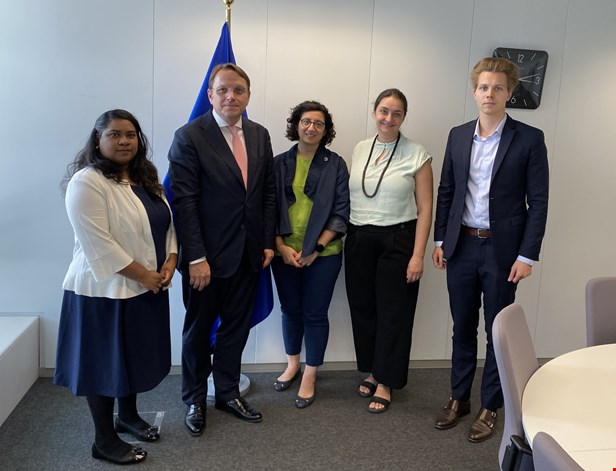EPF meets with Health Commissioner Várhelyi

On Wednesday 25 June 2025, the European Patients’ Forum (EPF) met with Commissioner for Health and Animal Welfare Olivér Várhelyi to exchange views on the future direction of the European Health Union. The discussion touched on several key policy areas, including the forthcoming Critical Medicines Act and issues related to medicine shortages, Health Technology Assessment (HTA), antimicrobial resistance, the financial sustainability of patient organisations, and a range of other health priorities identified in the new Commission mandate.
This meeting was an important opportunity for dialogue between the European Commission and patient organisations. EPF highlighted its crucial role in supporting the successful implementation of health policies and its longstanding collaboration with DG SANTE. EPF emphasised how its links with its members in the Member States can provide valuable feedback to the European institutions.
During this meeting, we shared EPF’s positions on key health policy topics that impact patients across Europe, pointing out the essential role of patient involvement at every stage of the policy-defining process to ensure no one is left behind.
“Overall, an open discussion on the top priorities for patients in Europe, during which we have reiterated our willingness to cooperate in the interest of patients. Common priorities aligning with the Commission’s portfolio emerged from the discussion, reassuring us on the centricity of patients in the upcoming policies. The current economic and financial situation was also discussed in light of the current direction of the European Commission", reflected Marco Greco, EPF President.
Looking ahead
We welcomed the open exchange with Commissioner Várhelyi. Patients have a central role in supporting EU health policy in this mandate. As the European Commission moves forward with major legislative proposals, we stand ready to contribute insights and solutions that are rooted in patient realities. We hope to see several of our concerns and proposals reflected in the Commission’s agenda, and will continue to support the Commission to ensure that patients are meaningfully involved at every stage.
